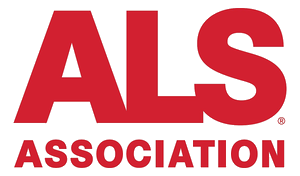The Association for Frontotemporal Degeneration (AFTD) and The ALS Association are launching a funding opportunity to support collaborative development of digital assessment tools across two overlapping neurodegenerative disorders: frontotemporal degeneration (FTD) and amyotrophic lateral sclerosis (ALS).
Leveraging a $500,000 ALS Association Partnership Grant, the Digital Assessment Tools for FTD and ALS Awards will provide $750,000, distributed across two to four grants, to aid the development of tools that use smartphones, wearable trackers, or other devices to remotely gather data on a person's symptoms or ability to function. If correctly designed and applied, digital assessment tools have the potential to expand research into, and strengthen care for, ALS and FTD.
Once considered separate neurodegenerative disorders, FTD and ALS are now recognized to have many commonalities at the molecular, cellular, and clinical levels. They share a common pathology (an aggregation of the RNA-binding protein TDP-43), and the genetic variant that leads to most hereditary cases (a hexanucleotide repeat expansion in the C9orf72 gene) is the same in both diseases.
Additionally, symptoms of ALS and FTD frequently overlap – people with ALS can exhibit behavioral and language issues often seen in FTD, while persons diagnosed with FTD can experience ALS-like movement problems. Some researchers have suggested that the two diseases exist along a clinical spectrum.
Research into FTD and ALS is impeded by some notable barriers. Since both are rare diseases, the pool of potential research participants who have the time and resources to travel to a study site is severely limited. Additionally, the clinical centers providing care and conducting research for people with FTD are usually separate from those for people with ALS.
Digital assessment tools can overcome these barriers. "Carefully developed digital tools can help people living with a diagnosis of ALS, FTD, or ALS-FTD to participate in research more easily and more frequently, and from the comfort of their own homes," said AFTD Senior Director of Scientific Initiatives Penny Dacks, Ph.D. "And, because digital tools allow for remote participation from those who may not have the means to travel to sites due to cost or distance, the data is more likely to represent the people living with these diseases."
"AFTD is proud to partner with The ALS Association to foster collaboration across the FTD and ALS research communities," Dr. Dacks added. "This program will advance digital tool development at the intersection of these two worlds, helping to create tools that can meet the families that are often living in the middle."
Kuldip Dave, Ph.D., senior vice president for research at The ALS Association, reinforced the benefits of this partnership to both the ALS and FTD communities.
"Despite being intertwined biologically, research into ALS and FTD has traditionally been conducted in silos. This partnership and collaborative funding will help bridge the divide, bringing together researchers with interests spanning the continuum of these two diseases," Dave said. "Together, we can achieve much more than we could on our own."
The Digital Assessment Tools for FTD and ALS Awards are open to investigators worldwide at academic or other nonprofit research institutions, as well as for-profit organizations such as biotechnology companies and digital-technology developers. Partnerships between academia and industry are encouraged.
About The ALS Association

Established in 1985, The ALS Association is the only national non-profit organization fighting ALS on every front. By leading the way in global research, providing assistance for people with ALS through a nationwide network of chapters, coordinating multidisciplinary care through certified clinical care centers, and fostering government partnerships, The Association builds hope and enhances quality of life while aggressively searching for new treatments and a cure.